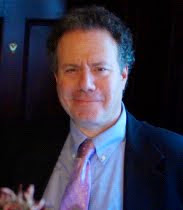Secret De-Coders And All That Kind of Thing – Who Needs ‘Em
I recently read Pete Hamill’s memoir A Drinking Life, mainly because it caught my eye on the shelves of my local small town library, and because I remembered reading an article by Hamill on the same subject at least ten years before, perhaps longer, and because I had also just read his Why Sinatra Matters, an excellent essay. As I’ve previously written (and quoting admittedly William Powell in The Thin Man), I’m way behind on my drinking. This unusual “drinking problem” leads me to pay attention to tales of others who discuss the more conventional variety.
Before the drinking, Hamill the boy was obsessed with comic books, started drawing his own, received professional training. Captain America, secret code rings, and that kind of thing, kept Hamill fascinated through his formative years, when you had the easy-to-hate villains of the Second World War. Reading all this made me think: none of this happened to me. Was I robbed, or was there a benefit?
An entire species of boy/man phenomena passed me by entirely. As the drinking didn’t happen to me, the superhero comics didn’t either. Of course you’d encounter them at the houses of friends, and I am familiar with their catch-phrases and references, but I’d never buy them (later I would never buy cigarettes, and still later never buy drugs, both good strategies if you don’t want to turn into bad habit that to which you may be exposed). No, the only comics that attracted me then, to the point of purchase, and even now, to the point of a browse, were the Archie comics. Teenage love is the theme, and is there truly any other kind of romantic love? (It’s a rhetorical question; you’re supposed to answer, “nope, I guess not.”). Oh, there are other types of love, and I guess more mature kinds of love, but romantic love, that’s a teenage phenomenon. When you go goo-goo- and gaa-gaa over someone, isn’t that the teenager talking? (Don’t answer if you actually are a teenager, or if you haven’t quite gotten there yet; bad, go read about superheroes, go eat something.)
This brings me back to the time when I was in fact a teenager, fourteen and a few months to be exact, and it was at summer camp. Understand this: when you’re walking with a girl and you’re fourteen and you want to kiss her, you are at a disadvantage if you have been imbuing yourself with all that Superman, Batman and Aquaman imagery. Oh, you want the kiss, you need that first kiss as much as the next guy, but all those flashing comic colors and sci-fi terminologies have got to be mind-numbing just at the wrong time. You hope that it will all happen automatically; maybe she will take the lead. You don’t know what the hell you are doing.
With Archie as your guide, you do know what you are doing. You have a model. You can divide all femininity into two types: Betty and Veronica. (Later you theorize females have six types, then twelve, even later they all act as one in league against you, but the comic’s producers conveniently bypass these themes in favor of hammering home their one insistent point: real heroes don’t fight evil, they smooch.) So Carol and I walked around the path to the back of the lake. Carol was at least two inches taller than me. I had to go on tiptoe. Didn’t Archie have to do exactly
 the same thing, the tall girl routine? I am sure I had seen this more than once.
the same thing, the tall girl routine? I am sure I had seen this more than once.What an advantage I had, all those impressions in my brain, those templates, those paradigms, of full-color smooching, all that was Archie. And Archie is still around; let’s not forget that, as action heroes come and go; kryptonite can get Superman, but even Mr. Lodge cannot truly nonplus this hero.
What I don’t remember is whether or not I stood on anything to reach Carol’s lips; what I do know is that I did reach them, tasted them, and can still taste their magnificence. Thank you, Mr. Andrews. (And thank you also, Carol, since you did have something to do with it.) Think of the years of drinking and dissipation you both saved me.

